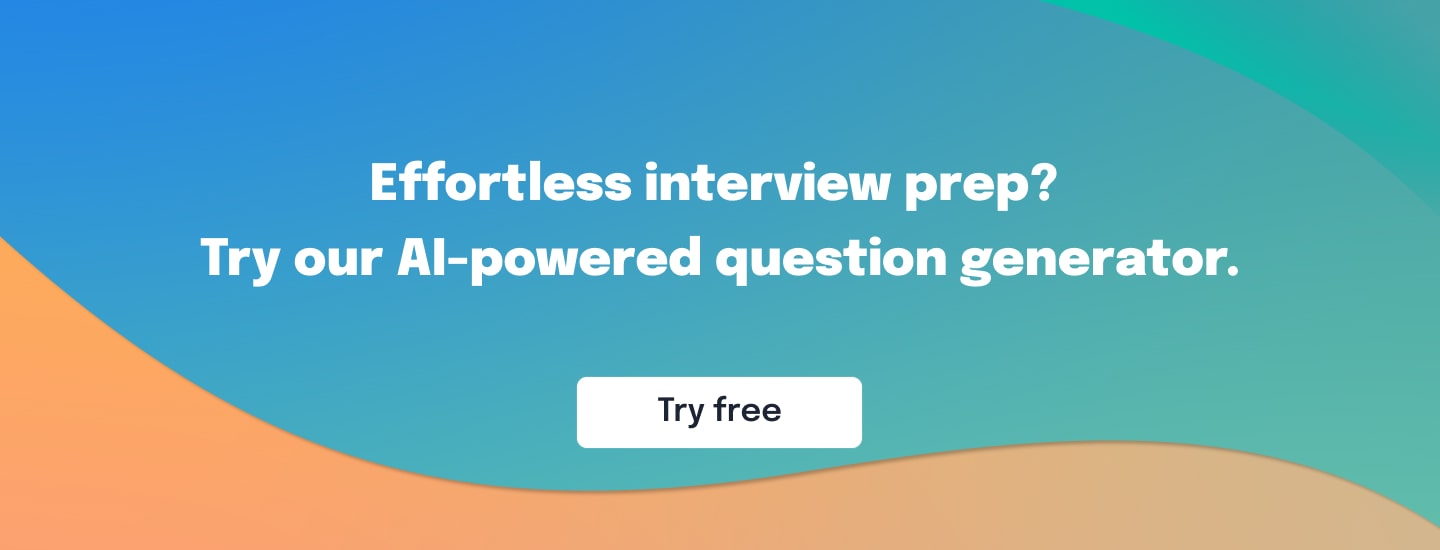When you’re on the path to hiring a Senior C# developer, it’s like embarking on a unique journey filled with challenges. It’s about finding someone who not only knows their way around code but also clicks with your team’s vibe. Our quest for creating these interview questions is rooted in data-driven insights, gleaned from our extensive analysis of C# development trends and successful project outcomes.
These questions dig deep into the world of C#, threading, how they handle different parts of apps, and lots more. They’re a product of our data-backed approach, designed to reveal the magic these Senior C# developers can bring to your projects. So, let’s get started, and discover the potential and prowess these developers can bring to your team.
Table of Contents
1: Can you explain the concept of asynchronous programming in C# and how it differs from synchronous programming?
Expected Answer: Asynchronous programming in C# allows non-blocking execution, improving application responsiveness. It involves tasks and async/await keywords. Synchronous programming blocks until a task is completed.
Explanation: This question assesses the candidate’s grasp of asynchronous programming, vital for building responsive applications that efficiently handle I/O-bound tasks, like making API calls or reading files.
1.1: How do you handle exceptions in asynchronous C# code, especially when multiple tasks are involved?
Expected Answer: We use try-catch blocks within asynchronous methods and handle AggregateException when awaiting multiple tasks. This ensures proper error handling and avoids application crashes.
Explanation: Exception handling in asynchronous code is critical for maintaining application stability, especially when dealing with parallel tasks that might throw exceptions.
1.2: Can you discuss scenarios where you’d prefer using synchronous programming in C# over asynchronous programming?
Expected Answer: Synchronous programming is suitable when tasks are CPU-bound and do not involve I/O operations. It simplifies code and eliminates complexities associated with asynchronous programming.
Explanation: Knowing when to opt for synchronous programming demonstrates a well-rounded understanding of performance considerations in different scenarios.
2: Have you worked with .NET Core and .NET Framework? Can you discuss their differences and the scenarios where you’d choose one over the other?
Expected Answer: .NET Core is cross-platform and suitable for modern, lightweight applications. .NET Framework is Windows-only and suited for legacy applications with full framework dependencies.
Explanation: This question evaluates the candidate’s familiarity with the two frameworks, helping determine their ability to select the appropriate framework based on project requirements.
2.1: How do you handle platform-specific code when developing applications for both .NET Core and .NET Framework?
Expected Answer: We use dependency injection and conditional compilation symbols to handle platform-specific code. This ensures that the application runs seamlessly on both frameworks.
Explanation: This follow-up question gauges the candidate’s practical experience in managing cross-platform code, which is essential in heterogeneous development environments.
2.2: Can you discuss the advantages and challenges of migrating a .NET Framework application to .NET Core?
Expected Answer: Migrating offers benefits like improved performance and cross-platform compatibility. Challenges include dealing with deprecated APIs and ensuring third-party library compatibility.
Explanation: Recognizing the benefits and challenges of migration showcases the candidate’s strategic thinking and awareness of modernizing legacy systems.
3: How do you ensure secure communication over networks in C# applications, particularly in scenarios involving sensitive data?
Expected Answer: We use HTTPS for encrypted communication and TLS for secure data transmission. Properly configuring SSL certificates and using secure authentication mechanisms like OAuth ensures data protection.
Explanation: This question evaluates the candidate’s grasp of network security measures, crucial for safeguarding sensitive data from unauthorized access during transmission.
3.1: Can you explain the concept of token-based authentication and how it’s implemented in C# applications?
Expected Answer: Token-based authentication involves issuing tokens (like JWT) to authenticated users, eliminating the need to store session data on the server. The token includes user information and is verified on subsequent requests.
Explanation: Understanding token-based authentication highlights the candidate’s knowledge of modern authentication methods, vital for building secure applications.
3.2: Have you worked with any security libraries or frameworks like IdentityServer in C# projects? If so, can you discuss the benefits of using them?
Expected Answer: Yes, IdentityServer simplifies authentication and authorization tasks. It provides single sign-on capabilities, centralizes user management, and supports protocols like OAuth and OpenID Connect.
Explanation: Familiarity with security libraries demonstrates the candidate’s practical experience in implementing robust security mechanisms, enhancing the integrity of C# applications.
4: Can you discuss your experience with C# LINQ (Language Integrated Query) and how it simplifies data querying and manipulation?
Expected Answer: LINQ allows querying collections and databases using a uniform syntax. It simplifies code by eliminating loops and providing a more declarative way to manipulate data.
Explanation: This question assesses the candidate’s proficiency in LINQ, which is essential for efficient data querying and manipulation in C# applications, enhancing code readability and maintainability.
4.1: How does deferred execution work in LINQ, and what are the benefits of using it?
Expected Answer: Deferred execution postpones query execution until the result is actually needed. It optimizes performance by minimizing database calls and efficiently processing data only when required.
Explanation: Understanding deferred execution showcases the candidate’s awareness of optimizing query performance, a vital consideration in data-intensive applications.
4.2: Can you provide an example of a scenario where using LINQ improved the efficiency of a C# project you worked on?
Expected Answer: In a recent project, I used LINQ to simplify data filtering and sorting in a web application. It reduced the amount of code needed and improved overall readability.
Explanation: Providing a real-world example demonstrates the practical benefits of using LINQ and showcases the candidate’s ability to apply it effectively.
5: How do you manage state in web applications developed using C#? Can you discuss the differences between client-side and server-side state management?
Expected Answer: Server-side state management involves storing data on the server, reducing client-side data exposure. Client-side management uses cookies, local storage, or session storage but may have security implications.
Explanation: This question evaluates the candidate’s understanding of state management strategies, essential for building efficient and secure web applications in C#.
5.1: Can you discuss scenarios where you’d prefer using client-side state management techniques in C# applications?
Expected Answer: Client-side state management is suitable for maintaining user preferences or temporary data between page reloads, offering a smoother user experience.
Explanation: Recognizing appropriate scenarios for client-side state management highlights the candidate’s practical judgment in choosing the right approach based on specific requirements.
5.2: Have you worked with C# session state management? Can you elaborate on its advantages and challenges?
Expected Answer: Yes, C# session state management allows storing user-specific data on the server. It offers data persistence between requests, but challenges include scalability and performance impact.
Explanation: Familiarity with session state management illustrates the candidate’s experience in handling user-specific data efficiently, while also considering potential drawbacks.
6: Have you developed RESTful APIs using C#? Can you discuss your approach to designing RESTful endpoints and ensuring scalability?
Expected Answer: Yes, I’ve developed RESTful APIs. I focus on resource modeling, use HTTP methods appropriately, and implement pagination and caching to ensure scalability.
Explanation: This question assesses the candidate’s experience in building scalable and well-designed APIs, critical for building robust and efficient web services.
6.1: How do you handle versioning in RESTful APIs developed using C# to ensure backward compatibility?
Expected Answer: I use versioned URLs or headers to handle API versioning. This ensures that changes to the API do not break existing client implementations.
Explanation: Understanding API versioning showcases the candidate’s awareness of maintaining compatibility and a seamless experience for clients.
6.2: Can you explain the importance of proper error handling and status codes in RESTful APIs, and how do you implement them using C#?
Expected Answer: Proper error handling and status codes provide clear communication between the API and clients. For instance, using appropriate HTTP status codes like 400 for bad requests ensures consistency and understanding.
Explanation: This question examines the candidate’s grasp of designing APIs that offer meaningful responses, enhancing user experience and aiding troubleshooting.
7: Can you discuss your experience with unit testing in C# applications and the benefits of adopting a test-driven development (TDD) approach?
Expected Answer: Unit testing involves writing automated tests to verify individual components. TDD emphasizes writing tests before code, leading to more reliable code, easier maintenance, and faster bug detection.
Explanation: This question evaluates the candidate’s familiarity with testing practices, highlighting their commitment to producing robust and maintainable C# applications.
7.1: How do you ensure effective code coverage in unit tests, and can you discuss strategies for testing edge cases?
Expected Answer: I use code coverage tools to measure test coverage and ensure comprehensive testing. For testing edge cases, I identify boundary conditions and create tests that exercise those scenarios.
Explanation: Code coverage and testing edge cases demonstrate the candidate’s attention to detail and thorough testing practices, crucial for identifying potential issues.
7.2: Can you provide an example of a situation where unit tests saved time and improved code quality in a C# project?
Expected Answer: In a recent project, I wrote unit tests for a complex calculation module. Tests caught calculation errors early, saving debugging time and ensuring accurate results.
Explanation: Sharing practical examples of how unit tests contribute to project efficiency and reliability underscores their importance in real-world scenarios.
8: How do you ensure code quality and maintainability in C# projects, especially when collaborating with a development team?
Expected Answer: I follow coding standards, use design patterns, and conduct code reviews to ensure consistency and quality. Regular refactoring helps maintain a clean codebase.
Explanation: This question evaluates the candidate’s commitment to producing maintainable and high-quality code, essential for a collaborative development environment.
8.1: Can you discuss scenarios where applying design patterns enhanced the architecture and maintainability of a C# application you worked on?
Expected Answer: In a project, we applied the Singleton pattern to ensure a single instance of a connection pool, optimizing resource usage and enhancing performance.
Explanation: Sharing instances of design pattern application demonstrates the candidate’s ability to leverage best practices for architectural improvements.
8.2: How do you handle code documentation in C# projects, and what benefits does comprehensive documentation offer?
Expected Answer: I use XML comments to document code, providing insights for developers using classes and methods. Comprehensive documentation improves code understandability and reduces onboarding time.
Explanation: Effective documentation showcases the candidate’s attention to clear communication within a development team, enhancing code collaboration and maintenance.
9: Can you discuss your familiarity with C# threading and concurrency management? How do you prevent race conditions and ensure thread safety?
Expected Answer: C# threading involves managing multiple threads to improve application performance. To prevent race conditions, I use locks, Monitor class, or concurrent collections to ensure thread safety.
Explanation: This question evaluates the candidate’s grasp of thread safety practices, which are crucial for developing scalable and reliable multi-threaded applications.
9.1: Have you worked with C# async/await for asynchronous programming? Can you discuss the advantages and potential pitfalls?
Expected Answer: Yes, async/await simplifies asynchronous programming and improves responsiveness. However, incorrect usage can lead to deadlocks or inefficiencies, so careful consideration is necessary.
Explanation: Understanding the nuances of async/await highlights the candidate’s awareness of both its benefits and potential challenges, ensuring optimal application performance.
9.2: Can you provide an example of a situation where you optimized concurrency in a C# application to improve performance?
Expected Answer: In a project, I used a producer-consumer pattern with concurrent collections to efficiently process a high volume of incoming data, reducing bottlenecks and enhancing throughput.
Explanation: Sharing a practical example of optimizing concurrency showcases the candidate’s ability to address performance bottlenecks in real-world scenarios.
10: Can you discuss your experience with Dependency Injection (DI) in C# applications and how it promotes modular and maintainable code?
Expected Answer: Dependency Injection involves supplying dependencies externally, improving code modularity and testability. It reduces tight coupling between components and enables easier maintenance.
Explanation: This question evaluates the candidate’s familiarity with Dependency Injection, a crucial concept for building scalable and maintainable C# applications, showcasing their architectural awareness.
10.1: How do you choose between Constructor Injection, Property Injection, and Method Injection in C# projects? Can you provide an example where one is more suitable than the others?
Expected Answer: Constructor Injection is preferred for mandatory dependencies, while Property Injection suits optional ones. I used Method Injection when dynamically providing dependencies, like in a plug-in system.
Explanation: Understanding the nuances of different injection approaches indicates the candidate’s ability to select the most appropriate method based on varying requirements.
10.2: Can you explain how Dependency Injection Containers work in C# and the benefits of using them for managing dependencies?
Expected Answer: Dependency Injection Containers automate dependency resolution and injection, reducing manual setup. They simplify unit testing, enhance code readability, and enable effortless swapping of implementations.
Explanation: Knowledge of Dependency Injection Containers illustrates the candidate’s proficiency in leveraging tools that streamline dependency management, vital for scalable applications.
Final Thoughts
In wrapping up our exploration of interview questions for Senior C# developers, we’ve embarked on a journey to find the perfect fit for your team. Remember, it’s not just about the tech skills but also about how they jive with your company’s spirit. These questions help us delve beyond the surface, revealing a candidate’s C# prowess, problem-solving flair, and how they seamlessly mesh with your crew.
As you embark on your interviewing adventure, always keep in mind that finding the right developer is like piecing together a puzzle. And if you’re looking for an extra edge, consider enlisting the help of i1, our specialized AI assistant for talent vetting. With its deep learning chops, you can tailor interviews to your company’s quirks and find that perfect Senior C# developer who’ll join your team like a missing puzzle piece. So, here’s to happy hiring and the exciting journey ahead!







